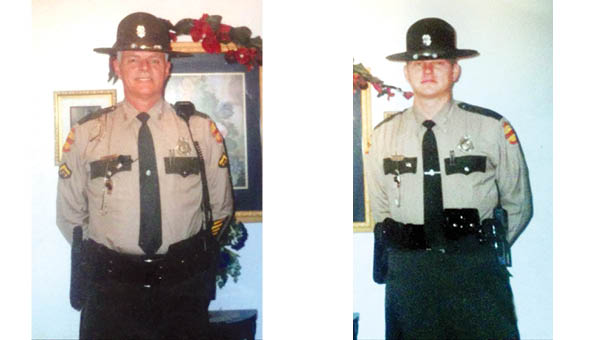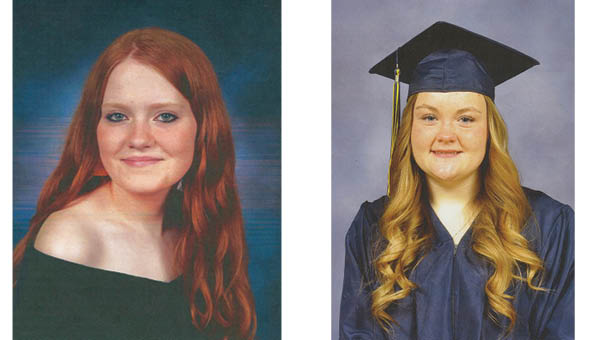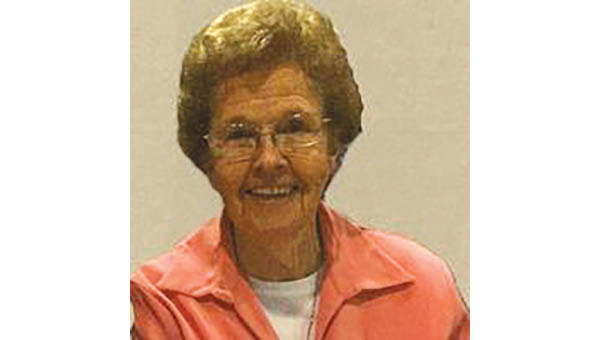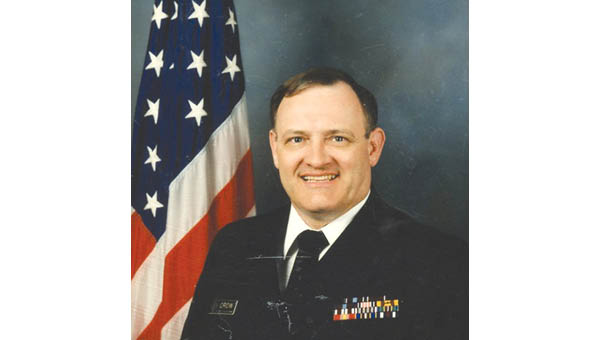WWII veteran cherishes artifacts from service days
Published 10:45 am Monday, November 10, 2014

Harold Hubbard, show at left during WWII and at right with his shadowbox of medals, fought on the front lines in the Italian Alps during the war.
Memories, medals and letters home are all that are left to mark a time in history that changed the life of a local veteran.
Harold Hubbard served in the United States Army during World War II. Fighting on the Italian front, Hubbard was awarded a Purple Heart and two Bronze Stars along with several other medals for his service to his country.
Though lots of time has passed since his days in uniform, the memories remain strong for Hubbard — some of them good and others sad.
Going through basic training was a bit of a culture shock for the Carter County native. Hubbard was drafted into the Army in February 1944 at the age of 19. He was a high school student at the time.
Having a strict upbringing in a family with strong ties to their church, Hubbard said it was strange to arrive in basic training and be without his mother and father for guidance. He vividly recalls the day he stepped off the bus at Fort McClellan in Alabama.
“When we got off the bus, the drill sergeant was standing there,” he said. “He was a heavyset fellow, very strong looking, very determined looking.
“He talked to us and he said ‘I am your mother and I am your father. You will be the meanest, killingest soldier when you leave my unit. You will do what I say, when I say it.’ Those were his very words.”
After completing his 13 weeks of basic training, Hubbard was taken to Camp Patrick Henry in Virginia to prepare for his deployment to the European front.
“I never got to come home from basic training,” he said. “I wrote my mother a letter and said ‘you remember that man that said ‘give me liberty or give me death?’ Well, that’s where I’m at.’
“The censors cut every bit of that out; she never knew where I was,” he added.
According to Hubbard, censors monitored all the mail soldiers sent home and removed any details which could give away their location.
Hubbard spent 31 days at sea as he crossed the North Atlantic — waters which were infested with German submarines and destroyer ships — on his way to Italy. He recalls landing in Naples, Italy where troops organized before moving toward the front lines.
“The whole town was dark; there were no lights in Naples, Italy,” he said. “The German planes were still flying over and bombing it.”
Once in Italy, Hubbard joined Company K of the 361st Infantry Regiment, 91st Infantry Division and prepared to move into Northern Italy and the Alps. Before they set out for the Alps, Hubbard said a chaplain met with the troops, and he recalled the words of comfort offered to him and his fellow soldiers.
“He said to us ‘You are now going into combat. Some of you will live. Some of you will die. But none of you will ever become a coward. May God Bless you,’” Hubbard said.
In the Alps, the troops in his unit patrolled mountain passes trying to locate German troops.
One day on patrol, Hubbard’s squad went to clear out a pillbox — concrete dug-in guardposts — occupied by the Germans.
“A German soldier came out of that pillbox with his gun over his head wanting to give up,” Hubbard recalled. “An SS Trooper came out from the other side and shot and killed him.
He then had his pistol pointed at us and I shot him and killed him.” He said the German forces often sent SS Troopers to the front lines with regular units to prevent the soldiers from surrendering to Allied forces. SS Troopers — known in German as the Schutzstaffel — were special forces soldiers under the leadership of Heinrich Himmler and became the special protection force for Adolf Hitler.
Clearing pillboxes was a large part of combat in the Alps as both sides fought for the mountain passes. Hubbard recalls one excursion he and a fellow soldier — whom he fondly refers to by the military nickname of “K.Y.” — went on. They located a pillbox with smoke rising from the chimney.
“I crawled up on top of that pillbox and dropped two hand grenades down the smokestack and I got out of there,” he said. Following the explosion, Hubbard said K.Y. crawled up to the front of the pillbox and saw that all the German troops inside had been killed in the blast. “They was cooking kraut and knockwurst in there,” Hubbard added as he laughed. “We ate it all.”
On the front lines, Hubbard said soldiers not only had to contend with enemy soldiers, but mines, mortar fire and steel artillery fire as well.
One day on patrol, he said his squad encountered a field full of what the soldiers called “Bouncing Bettys,” which he described as anti-personnel mines that would pop up to about waist height and explode. While walking through the field, Hubbard said he stepped on one of the mines. “God was with me, I stepped on a dud,” he said.
Troops patrolling in the Alps had to take special precautions for their safety, Hubbard added.
“They took our dog tags from us,” he said. “They said if you had a ‘J’ on there, if you were a Jew, the Germans would kill you right there, but if you had a ‘P’ on there you might be taken back as a prisoner of war.”
The military and life in combat changes a person, Hubbard said. “You become a different person in basic training. When you got into a situation where you could turn to no mother and no father, you became mean. You killed. You just thought to protect yourself.”
Not all of Hubbard’s memories are of combat and killing. He has fond memories of those he served with, his brothers in arms, and some of the funny situations he encountered during his service. However, even the fondest memories can lead to sadness as he recalls the soldiers he served with who didn’t survive the war.
Hubbard said he doesn’t like to talk about many of his experiences in the war because of the memories that flood back into his mind.
“I have PTSD (Post Traumatic Stress Disorder),” he said. “They used to call it shell shock.”
Hubbard wrote many letters home to his mother, many of which were censored, and oftentimes the letters took months to reach their destination.
“My mother kept every letter I wrote,” he said. “My son has them now. I’ve never read them and I don’t want to read.”





